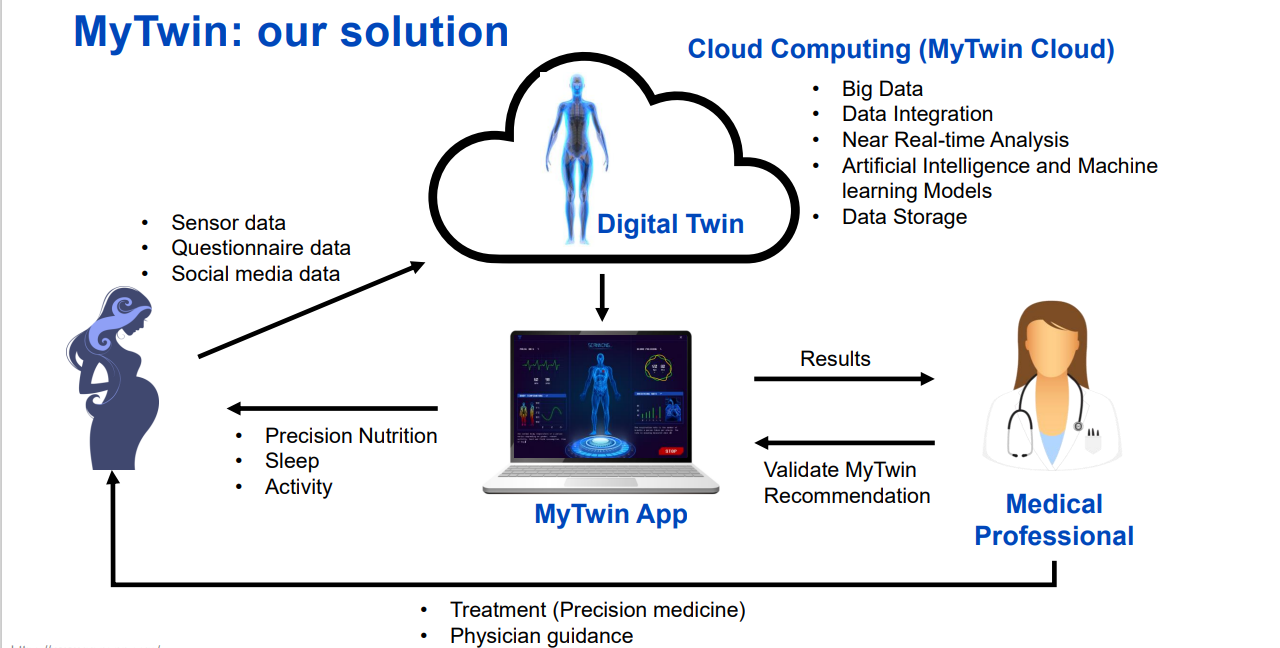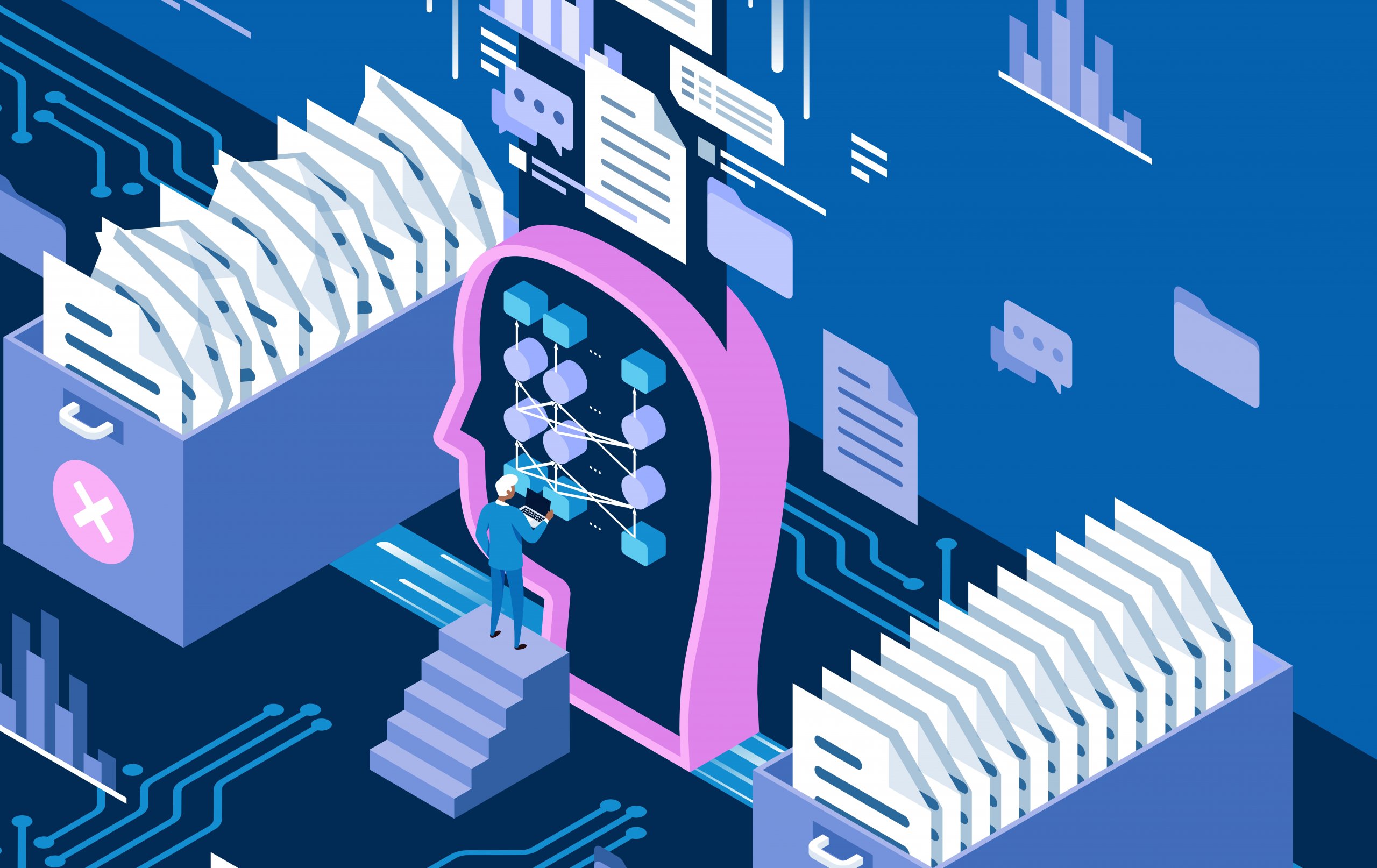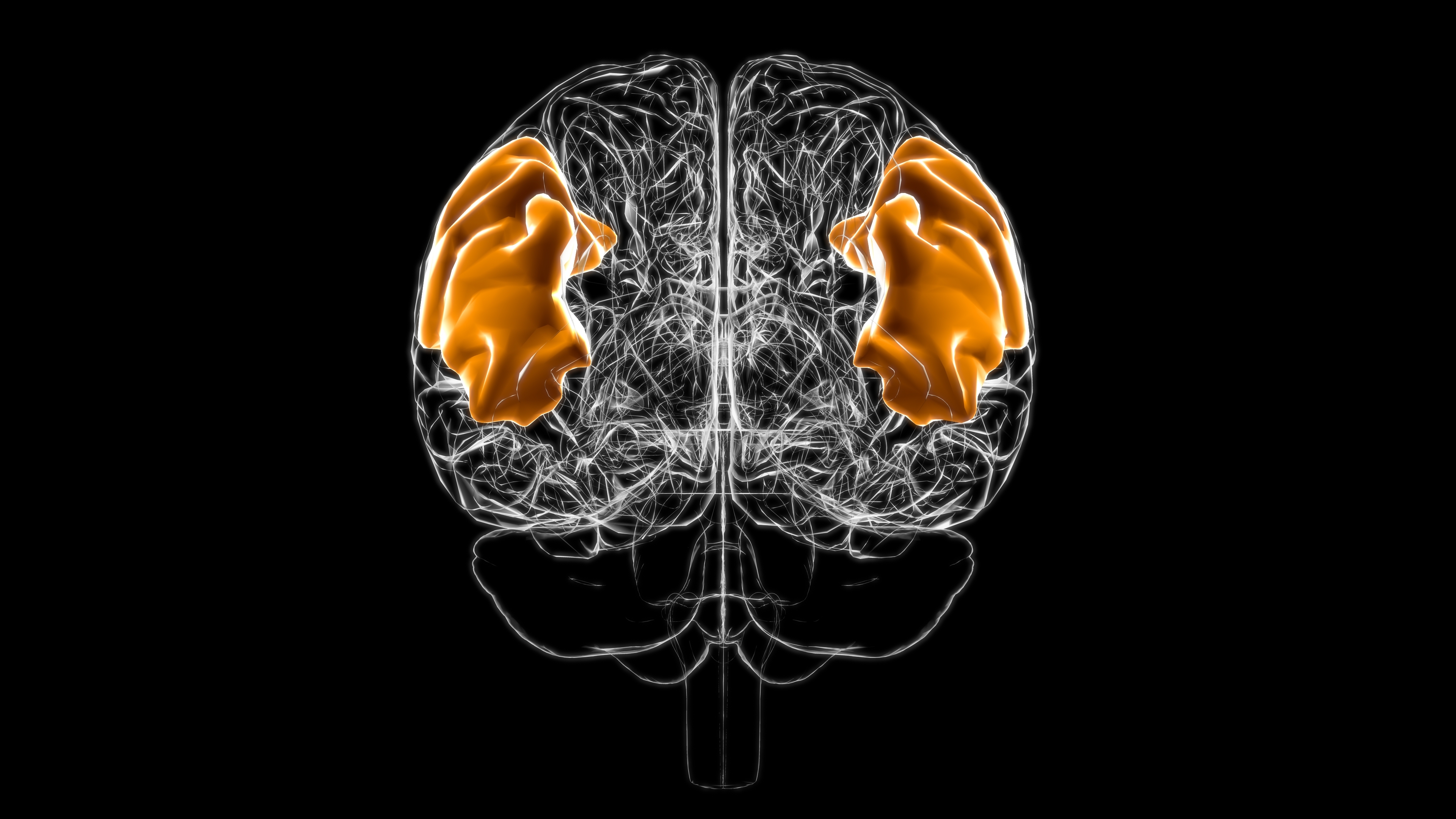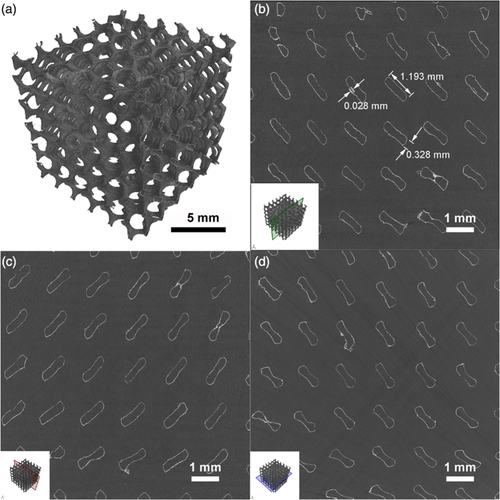
Using digital twin technology, the new app can support patients and physicians to improve health outcomes and protect expectant mothers.
Researchers from Khalifa University won third place in the Power to Impact 2023 competition with their smartphone app MyTwin. Dr. Aamna Al Shehhi, Assistant Professor of Biomedical Engineering, and Dr. Sherlyn Jemimah, Postdoctoral Researcher, developed the app to support pregnant women with gestational diabetes mellitus (GDM) diagnoses.
Gestational diabetes is a global health issue that affects pregnant women of all ethnicities and geographic regions, although some studies suggest it may be more common in women in the Middle East. GDM usually develops around the 24th week of pregnancy and is caused by hormonal changes that occur during pregnancy, which can make it harder for the body to use insulin effectively. This can lead to high blood sugar levels, which can harm both the mother and the developing baby.
“One in four pregnant women faces the risk of gestational diabetes in the MENA region,” Dr. Al Shehhi said. “With MyTwin, pregnant women and physicians can personalize treatment, ensuring neonatal and maternal health before and after delivery.”
Treatment for GDM typically involves making dietary changes and increasing exercise levels to help control blood sugar levels, although in some cases, medication may be necessary. Women with GDM are closely monitored throughout their pregnancy, as if left untreated, gestational diabetes can increase the risk of complications including preeclampsia, premature birth, and the need for a cesarean delivery. It can also increase the risk of Type 2 diabetes later in life for both the mother and baby.
“Our digital twin solution, MyTwin, enables doctors to personalize GDM treatment and make better-informed decisions about patient care,” Dr. Al Shehhi said. “Each patient’s digital twin is personalized and provides optimized, real-time diet and lifestyle recommendations while ensuring patient privacy through the smartphone app.”
Digital twins are virtual replicas of physical objects, systems or processes that allow for simulation, analysis, and optimization. In this case, the digital twin is a medical model of an individual, allowing doctors to plan surgeries, test treatments and make better diagnoses.
Sensors connected to the MyTwin app collect data about the patient’s glucose levels, vital signs, and fitness level. A Whole Body Digital Twin (WBDT) digital avatar is then generated, and the patient’s data is analyzed using artificial intelligence techniques. The WBDT represents the patient’s metabolism and enables the prediction of future health states for different interventions, such as changes to nutrition, exercise and sleep habits. Medication may also be suggested, subject to the overseeing doctor’s approval. Postpartum, monitoring is resumed to help avoid the development of Type 2 diabetes.
“The WBDT reflects what it learns from the patient’s data and is trained using lifelong deep learning algorithms,” Dr. Al Shehhi said. “MyTwin combines data-driven, physician-led intervention with community support from the family and health education professionals to ensure the health of affected women and the future generation.”
Digital twins have the potential to improve the accuracy and efficiency of medical diagnoses, treatments, and procedures, ultimately improving patient outcomes and reducing health-care costs. However, the technology is still new and there are many challenges to be addressed, including data privacy and security. The KU researchers recognized that due to the nature of antenatal and postnatal care, doctors and patients may be hesitant to adopt the technology. To address this, they have made their model open and transparent, providing seminars and technical information to demonstrate how the model works, and take “the utmost care” to encrypt and secure patient data to ensure privacy.
“Digital twins have been deployed successfully to improve health and even reverse disease in diabetic patients,” Dr. Al Shehhi said. “We expect that our solution will transform maternal and neonatal health outcomes, leading to healthier families and communities.”
Jade Sterling
Science Writer
24 April 2023






